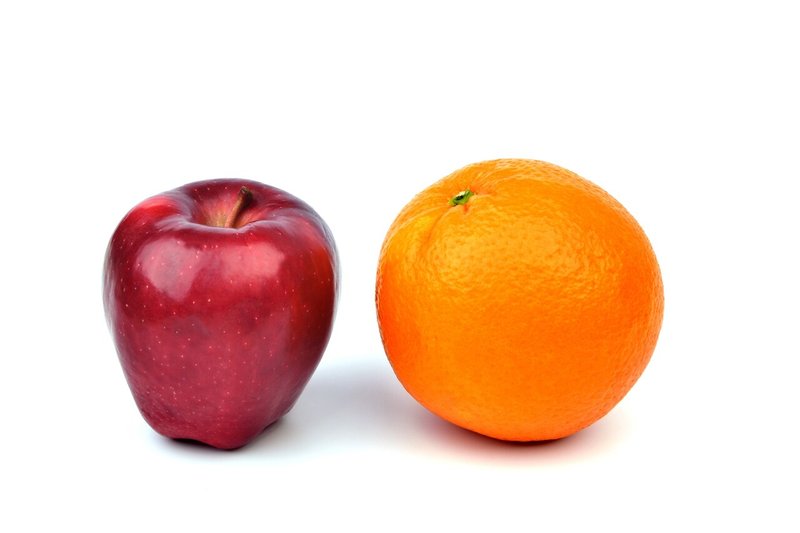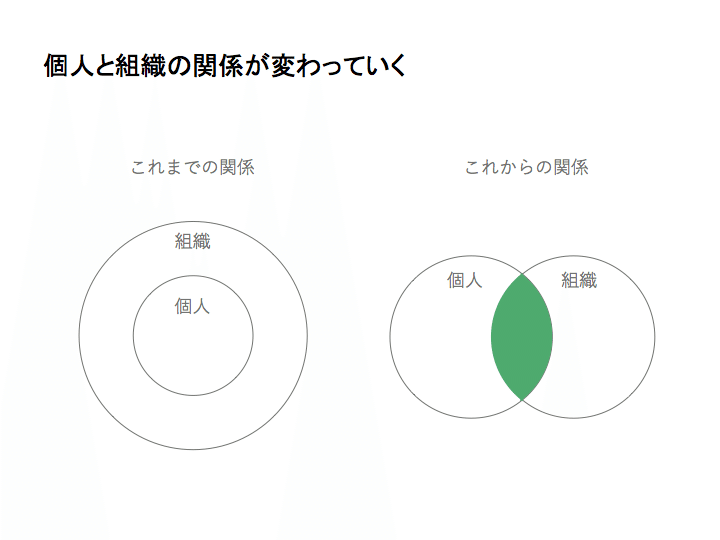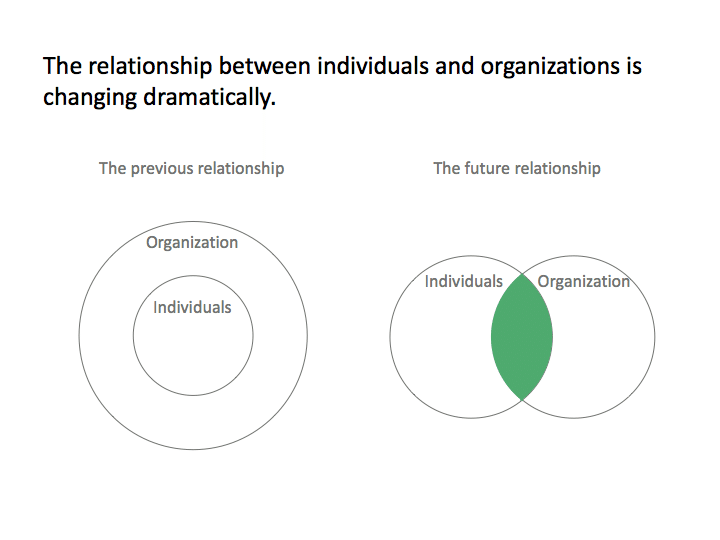
主体的真理とは何ではないのか?
前回の記事では「主体的真理とは何か?」について、主体的真理の定義や、私自身がこの言葉に出会ったストーリーをお話しました。今回は、主体的真理という言葉のイメージをより明確に持っていただくために、「主体的真理とは何ではないのか?」についてお話します。
主体的真理は、客観的真理ではない
まずは、前回の記事の復習を兼ねて、主体的真理の定義について確認をさせてください。
主体的真理の定義(落合の考え)
自分にとって生きがいとなる理想、自分固有の生きる目的。あるいは、それらの理想や目的につながる「いまここ」の方向感。
主体的真理の一番大切なところは、「自分にとっての真理」であり、誰にとっても正しい客観的真理とは異なるということです。自分にとって良いこと、楽しいこと、目指したいこと、幸せに思えることは、必ずしも、世の中で言われている「いいこと、目指すべきこと、幸せとされていること」とは同じではないということです。
逆に、客観的真理とは違うものでなければいけないかと言えば、そういうことでもありません。無理やり、独自性や個性を探し出したり、創り出そうとするのも、逆に「世の中の基準やいいとされていること」に囚われてしまっているとも言えるでしょう。
あくまでも、自然と直感的に「自分にとっての真理」と思えるものとして捉えておくと良いと思います。
主体的真理は、全てを言語化できるものではない
主体的真理は、自分固有の生きる目的ですから、当然ながらひとり一人違います。100人いれば、100通りの主体的真理があります。一方で、言葉というのは、人同士が相互に共通のイメージをもつための符号と言えます。人類がこれまで経験してきたことの中で、共通のイメージをもつことが有益であるものが言葉として共有されていると考えることができます。
そう考えると、ひとり一人違う主体的真理を、人類のこれまでの共通の符号である言葉で説明できるとは限らないことがわかります。例えば、地球上にない新しい「X」というものを想像したとしましょう。このXは、どのように言語化することができるでしょうか?
Xを表す直接的な言葉はありませんので、Xに近しいイメージをもつ言葉による比喩表現で説明せざるを得ません。「Xは、Aに近いけど、Bというニュアンスも含まれているもの」みたいな表現にならざるを得ないでしょう。
このように、主体的真理は、その全てを言語化できるわけではありません。主体的真理が明らかになっていないことや、言語化できていないことについて思い悩む必要はありません。そもそも言語化しにくいものなのです。
一方で、主体的真理は、その全てが言語化できるわけではないにしても、その一部を言語化・意識化して、日々の仕事や活動に紐づけていくことは、その人の充実感や幸福感を高めていくことにつながります。言語化・意識化することそのものというよりは、主体的真理とのつながりを感覚的・体感的に感じながら日々を過ごすと、充実感や幸福感が高まるというイメージに近いです。
ヴィジョンや夢やありたい姿は、主体的真理の一つの側面が、その時々に結晶化したものと言えます。サイコロのような立方体を思い浮かべていただいて、主体的真理はその立方体だとすれば、ヴィジョンや夢やありたい姿は、その1つの面を表しているというイメージです。あるいは、光をその立方体にあてた時にできる影として捉えてもよいでしょう。

少し回りくどい表現になってしまいましたが、主体的真理は、全てを言語化できるものではないが、その一側面であってもヴィジョンや夢やありたい姿などの形で言語化・意識化して、日々の仕事や活動と紐づけていくことは、充実感や幸福感を高めていくことにつながるということが言えます。
主体的真理は、与えられるものでも、作りだすものでもない
主体的真理は、そこにあるものであり、与えられるものでも、作り出すものでもありません。見つけるというのはありえますが、ないものを見つけるという意味ではなく、あるものに気づくという意味になります。
主体的真理が現時点で言葉になっていなかったとしても、それは主体的真理がないことを意味するのではなく、言語化されていないということのみを意味します。また、主体的真理が形になっていなかったとしても、それは主体的真理がないのではなく、まだ形になっていないだけです。
自分の周りに、きれいな花が咲く植物の種子がたくさん飛んでいる状況を思い浮かべてください。このメタファーにおいて、きれいな花が主体的真理を表します。きれいな花そのものは、まだ咲いていないけれども、その種子はそこにあるし、土壌や水などの環境が整えば、いつでも咲く準備ができているものになります。

ですから、主体的真理を無理やりに探し出そうとする必要はありません。すでに、自分の身の回りにあるはずなので、仮にそれが見えにくかったとしても、自然と姿を現すまで待つというくらいの気楽さで構えておくのが良いと思います。
主体的真理に、大小・善悪・貴賎はない
主体的真理に大小・良悪・貴賎はありません。あるのは、本来の自己とのつながりがあるかどうかだけです。エネルギーが自然と湧いてくるかどうか、誰が何といっても自分はこうしたいと思える何かかどうかということのみが大切です。その内容は、世の中のためというものであってもよいし、自分のためであってもよい。人類全体の幸福をテーマとしてもよいし、ジャイアンツの応援をテーマにしてもよい。
ですから、主体的真理の内容について、人と比較をしたり、何らかの基準と比較をしたりすることに意味はありません。大小もなければ、善悪もありませんし、貴賎もありません。
りんごとみかんのどちらが好きですか?という問いはあり得ても、りんごとみかんのどちらが上位ですか?という問いは意味をもちませんね。「りんご」はどこまでいっても「りんご」であり、「みかん」はどこまでいっても「みかん」です。主体的真理の違いというのは、そもそもの種の違いと一緒で、比較をすることに意味がありません。

比較することに意味がないということは、自分の主体的真理や、他者の主体的真理を否定したり、否定されたりするものではないということです。自分が主体的真理につながっていると思っていることを他者から否定されたとしても気にする必要はありません。そして、他者の主体的真理は、なるべくそれをそのままに理解して、受容してあげられることが人としての器と言えるでしょう。
主体的真理は、固定化したものではない
(エネルギー次元であって、物質次元ではない)
主体的真理は、形となって固定化したようなものではありません。主体的真理とつながりながら活動した結果として、何かを成し遂げたり、何かが形になったりすることはあるでしょう。
芸術家が、自分の主体的真理につながりながら創作活動を行い、作品ができたというような場面がこれに該当します。しかし、この作品は、主体的真理につながることで生まれた作品ということはできても、この作品自体が主体的真理であるということではありません。
主体的真理は、エネルギー次元のものであり、物質次元のものではないのです。
エネルギーは(例えば、電気エネルギーのように)、パソコンを動かすこともできれば、冷暖房器具を動かすこともできますし、電気自動車を動かすこともできます。エネルギーは変幻自在です。一方で、パソコンはすぐには冷暖房器具に変身できないように、物質はたやすく形を変えることはできません。
先ほどの芸術家の例で言えば、芸術家にとっての主体的真理は、芸術家の中にある「表現したい何か」と「表現したいという情熱」です。そして、それはエネルギー次元のものであり、そのエネルギーをもとに、一つひとつの作品という物質次元のものを生み出します。
主体的真理は、エネルギー次元のものであり、物質次元では変幻自在の形をとることができます。
この感覚がつかめると、主体的真理に生きる柔軟性が飛躍的に高まります。エネルギー次元にある主体的真理につながりながらも、物質次元での表現・体現方法は変幻自在なので、その時々の環境に応じて柔軟に対応することができるのです。
これが、「主体的真理の社会実装」という、主体的真理に生きることと、周囲を調和して生きるという矛盾・葛藤を統合する鍵となります。
以前の記事で、組織と個人の関係性が変わってきており、これからは「個人と組織の対等な関係、相互の主体的真理やありたい姿に基づいて、協働することに合意する関係」という時代になるということを書きました。

この「相互の主体的真理に基づいて協働する」ということを実現する鍵は、主体的真理はエネルギー次元のものなので、物質次元でどのように体現するかはお互いに柔軟性が多分にあって、重ね合わせの仕方はいろいろなやり方を考えることができる、という感覚を持っているかどうかにあります。
組織と個人の関係についてお話をしましたが、個人同士の協働関係についても同じことが言えます。主体的真理の体現について柔軟性のある感覚をもっておくと、相互の主体的真理の重ね合わせ(ヴィジョン、目的、目標など)が容易になり、本質的な協働関係が生まれやすくなります。
本日の問いとなります。(よろしければ、コメントにご意見ください)
・これまで、相互の主体的真理の重ね合わせによって、いい協働関係が生まれた経験があるとすれば、それはどのような経験ですか?
・その経験において、エネルギー次元の「主体的真理そのもの」と、物質次元の「主体的真理が体現されたもの」の間にはどのような質感の違いがありますか?
What is NOT Subjective Truth?
In my last article titled "What is Subjective Truth?", I talked about the definition of subjective truth and the story of how I came across the term myself. In this article, I'd like to talk about "What is NOT the subjective truth?" in order to give you a clearer image of the term.
Subjective truth is not objective truth
First of all, let me review the definition of subjective truth by reviewing my previous article.
Definition of subjective truth (Ochiai's definition)
An ideal that makes life worth living for us, a purpose for living that is unique to us. Or, a sense of direction here and now that leads to those ideals and purposes.
The most important thing to remember about subjective truth is that it is "the truth for oneself" and is different from objective truth, which is right for everyone. What is good for oneself, what is enjoyable, what one wants to aim for, and what makes one happy are not necessarily the same as what the world says is good, what one should aim for, and what is considered happy.
On the other hand, it does not mean that we have to be different from the objective truth. Forcing oneself to find or create uniqueness or individuality is also a way of being trapped in the "world's standards and what is considered good."
I think it's best to just take it as what naturally and intuitively seems to be the "truth" for oneself.
Subjective truth is not something that can be verbalized entirely
Since subjective truth is the unique purpose of life, it is naturally different for each individual. Language, on the other hand, is a sign that allows people to have a common image of each other. We can think of language as a way for people to share a common image of what they have experienced and what would be beneficial to have in common.
When we think about it, we can see that subjective truth, which differs from one person to another, cannot always be explained by words, which have been the common sign of humanity up to now. For example, suppose we imagine a new "X" that does not exist on earth. How can this X be verbalized?
Since there is no direct word to describe X, we have to use a metaphorical expression with words that have similar images to X. For example, "X is something that is close to A, but also contains the nuance of B."
As we can see, subjective truth cannot be verbalized in its entirety. There is no need to worry about the lack of clarity or verbalization of subjective truth. By its very nature, it is difficult to verbalize.
On the other hand, even if subjective truth cannot be verbalized in its entirety, verbalizing and consciously connecting some of it to one's daily work and activities will lead to an increased sense of fulfillment and happiness. It is not so much that verbalizing and making conscious is important in itself, but rather that the sense of fulfillment and happiness will be enhanced when we spend our days feeling and experiencing the connection with the subjective truth.
It can be said that visions, dreams are the crystallization of one aspect of the subjective truth at any given time. If you think of a cube like a dice, and the subjective truth is that cube, then the visions, dreams represent one aspect of that cube. Or you can think of it as a shadow that is created when you shine light on the cube.
Although this is a bit of a roundabout way of expressing it, it can be said that subjective truth is not something that can be fully verbalized, but even one aspect of it can be verbalized and made conscious in the form of a vision, a dream, and linking it to daily work and activities will lead to a greater sense of fulfillment and happiness.
Subjective truth is neither given nor created
Subjective truth is something that is there, not something that is given or created. It can be found, but it doesn't mean finding something that isn't there, it means noticing something that is there.
Even if subjective truth is not verbalized at this time, it does not mean that there is no subjective truth, only that it is not verbalized. Also, even if subjective truth is not visible, it does not mean that there is no subjective truth, only that it is not yet formed.
Picture yourself in a situation where you are surrounded by the seeds of a plant that has many beautiful flowers flying around it. In this metaphor, the beautiful flowers represent the subjective truth. The beautiful flower itself has not yet bloomed, but its seeds are there, ready to bloom when the soil, water, and other conditions are prepared.
Therefore, there is no need to try to force oneself to find subjective truth. It should already be around us, and even if it is difficult to see, it is better to take it easy and wait for it to appear naturally.
Subjective truth has nothing to do with big or small, good or bad, high or low
There is no big or small, good or bad, noble or low regarding subjective truth. The only thing that matters is whether or not we are connected to our true self. The only thing that matters is whether or not energy comes naturally to us and whether or not it is something that we want to do no matter what anyone else says. The theme can be for the world or for ourselves. It can be for the well-being of humanity as a whole, or it can be to support the Yomiuri Giants.
Therefore, there is no meaning in comparing the content of subjective truth with others or with some standard. There is no big or small, good or bad, noble or low.
The question "Which do you like better, apples or oranges?" is possible, but the question "Which is higher, apples or oranges?" is meaningless. An apple is an apple, and an orange is an orange. The difference in subjective truths is the same as the difference in species, and there is no sense in making comparisons.
The fact that there is no point in making comparisons means that we are not denying or being denied our own subjective truth or the subjective truth of others. There is no need to be concerned if others deny what we believe to be connected to our subjective truth.It is the maturity of a person to be able to understand and accept the subjective truths of others as they are.
Subjective truth is not a fixed matter.
(It exists in the energy dimension, not in the matter dimension.)
Subjective truth is not something that seems to have taken shape and become fixed. It is possible to accomplish something or have something take shape as a result of working in connection with subjective truth.
This is the case of an artist who has created a work of art by connecting to his or her own subjective truth. However, while this work of art can be said to have been created by connecting to subjective truth, this does not mean that the work itself is subjective truth.
The subjective truth is of the energy dimension, not the matter dimension.
Energy (like electrical energy, for example) can run a computer, a heating and cooling system, or an electric car. Energy is mutable. On the other hand, just as a computer can't immediately turn into a heating and cooling device, matter can't easily change its form.
In the example of the artist mentioned above, the subjective truth for the artist is "something to express" and "passion to express" within the artist. And that is of the energy dimension, and from that energy, the matter dimension of each work of art is created.
Subjective truths are of the energy dimension and can take on transformative forms in the material dimension.
Once we grasp this feeling, our flexibility in living in subjective truth will increase dramatically. While we are connected to the subjective truth in the energy dimension, the way we express and embody it in the matter dimension is flexible, allowing us to respond flexibly to the environment of the moment.
This is the key to integrating the contradictions and conflicts of living in subjective truth and living in harmony with one's surroundings, the "social implementation of subjective truth."
In a previous article, I wrote that the relationship between organizations and individuals is changing, and that the future will be an era of "equal relationships between individuals and organizations, relationships of collaboration and agreement based on mutual subjective truths and aspirations. "

The key to realizing this "collaboration based on mutual subjective truths" is to have the sense that since the subjective truths are in the energy dimension, there is a great deal of flexibility in how they are embodied in the matter dimension, and that there are many ways to overlap them.
As I mentioned about the relationship between organizations and individuals, the same can be said about the collaborative relationship between individuals. A flexible sense of embodiment of subjective truths facilitates the overlapping of mutual subjective truths (visions, goals, objectives, etc.) and the development of essential collaborative relationships.
Here are the quests of the day. (If you'd like, please share your thoughts in the comments.)
・What experiences, if any, have you had in which a good collaborative relationship was created through the overlapping of mutual subjective truths?
・What is the difference in texture between the "subjective truth itself" in the energy dimension and the "embodiment of the subjective truth" in the matter dimension?
Bunshiro Ochiai
この記事が気に入ったらサポートをしてみませんか?
